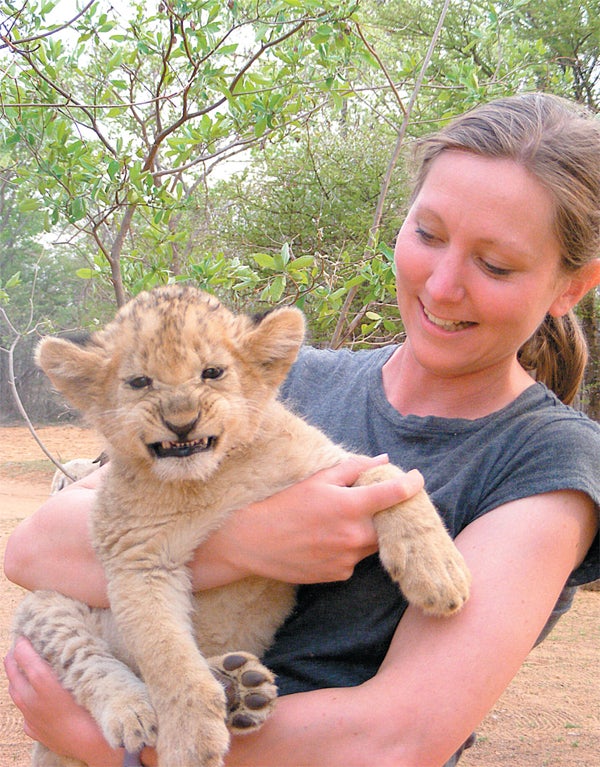Into the wild
Starting your degree in January gives you an extra three months for an exciting stopgap. Amy McLellan runs through the options

Education in the UK has traditionally followed an autumn-to-summer cycle, with only those students with the financial resources to fund a gap year able to take more than the two-month summer break from education.
However, this is changing as today’s fee paying students expect more from their higher-education experience. With an increasing number of courses offering intakes in January as well as September, students have the option to take a five- or six-month gap before starting their degree programme.
Students tempted by a January start have plenty of options to fill the months between completing exams and starting university. Those months will fly by, however, so it is worth having a plan in place to make the most of your time out. It is a great opportunity to earn some extra cash and bolster your finances before university, but don’t limit yourself to minimum-wage jobs.
“Why spend your time stacking shelves or waitressing when you could get a good office job in an ad agency or bank?” asks Judith Kark, head of development at Quest Business Training, a London-based college. “Quality work-based challenges are just as important for an 18-year-old as doing charity work or teaching English as a foreign language.”
Quest offers short courses that equip students with a suite of office-friendly skills so they can go out and secure higher-paying temp jobs in City firms. The courses cover computing – according to Kark, the IT skills taught in school are applied differently in the commercial world – diary and time management and presentation. “It’s easier to show you have initiative if you have the practical office skills to back it up,” says Kark.
International travel and charity work are still viable for those on a short gap. In fact for many students, particularly those on limited budgets, this is a more affordable option than a full gap year. Many traditional gap year organisations offer shorter breaks to cater for this market. Africa and Asia Venture ( www.aventure.co.uk), for example, runs short ventures in Kenya, Uganda, South Africa and Sri Lanka that mix community work with travel and adventure, while African Conservation Experience (www.conservation africa.net) offers popular month-long projects on game and nature reserves in southern Africa. “You can fit a lot into a month,” says Rob Harris, the founder of Africa Conservation Experience. “Volunteers always leave saying they feel like they have been there forever.”
Celia Rooney, who is about to begin a politics course at the University of Glasgow, enjoyed a five week project in Kenya with Africa & Asia Venture. “It was a good taster for first-time travel,” says Rooney, who was 17 when she went away to do the project.
“We spent three-and-a-half weeks building a school and then had two weeks of travel and adventure, exploring the beautiful national parks, camping and doing some water sports. It was an awesome experience and the cost, at £1,800, was much more manageable than a whole gap year.” Students tempted by a January start date should be aware that the course options are much more limited than in September. Some courses, such as nursing, have always offered January starts, but many others are stuck in the September cycle. Applications can still be made through UCAS; Oxford Brookes, Middlesex and London Metropolitan are among those offering undergraduate January starts.
The structure of the programme varies from institution to institution. Some have modular programmes that allow January starters to pick their own way through a course while others, such as Middlesex, offer an intensive, truncated January-to-August first year that means students can fall into line with the rest of their peer group in time for the start of second year.
“It means students lose some of their summer vacation, but we feel it’s worth it so they can catch up and benefit from peer support for the rest of the programme,” says Mike Dawney, director of British Isles recruitment at Middlesex University. “We don’t offer an extensive suite of programmes that start in January. But those we do – mainly in business and computing – are targeted at areas where there is most demand. That means students have a strong cohort identity and don’t feel lost.” Daniel Inyang started a BA in business and IT at Middlesex in January after he struggled to find work. “I wasn’t getting anywhere so I decided to go to university to improve my chances,” he says. “It was December time, so the January start was a very handy option. It’s likely that if I’d had to wait until the following September for admissions I wouldn’t be doing this, because I would have gone off and done something else.”
Inyang says the accelerated programme is a lot of work but worth the effort: “If you are determined to do something, you just get on with it”.
Subscribe to Independent Premium to bookmark this article
Want to bookmark your favourite articles and stories to read or reference later? Start your Independent Premium subscription today.

Join our commenting forum
Join thought-provoking conversations, follow other Independent readers and see their replies